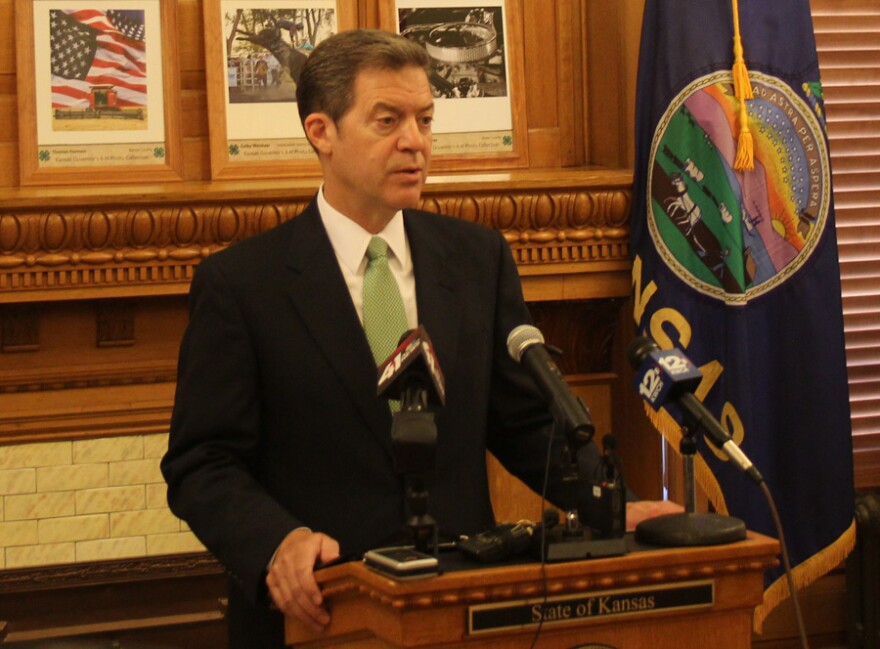Gov. Sam Brownback said Friday he’s unconvinced Medicaid expansion is an answer to the financial woes of rural Kansas hospitals and suggested they should innovate instead.
During a news conference Friday, Brownback was asked about a Reuters story on the improving financial fortunes of public hospitals in states that expanded Medicaid under the federal Affordable Care Act versus the stagnation of hospitals in states that did not.
The governor said he had seen another report recently that “went the other way.”
“(It) said that (in) states that had expanded Medicaid, the hospitals financially didn’t perform any better,” Brownback said. “There was a big study that was out three or four weeks ago.”
Brownback said he sent the report to Tom Bell, president and CEO of the Kansas Hospital Association.
Bell, reached by phone after the news conference, said what he received was a report out of Kentucky that said the ACA as a whole has been a net loss for that state’s hospitals.
But Bell said that’s because the law includes much more that affects hospitals than Medicaid expansion — including cuts to Medicare reimbursements based on things like readmissions.
He said that’s actually an argument for Medicaid expansion, because that is the financial balm offered to hospitals to soothe cuts from other parts of the law.
In Kansas and the other 18 states that so far have refused expansion, those cuts still occur, without the intended remedy.
“What happens is, half of that formula has been taken away,” Bell said.
Bell’s group has said for years that Kansas hospitals — especially critical access hospitals in rural areas that depend in part on local property tax funding — face a number of financial challenges. Medicaid expansion wouldn’t solve them all, but it would help.
Moody’s Investors Services reported last month that hospitals in states that expanded Medicaid saw big reductions in bad debt compared with hospitals in states that didn’t.
The bond rating agency called the lessening of bad debt “credit positive” for those hospitals, but said it had yet to lead to higher cash flow or other “materially better financial results” for them than hospitals in states without Medicaid expansion. Financial factors other than unpaid debt have a bigger impact, the bond rating agency’s analysts said, and those other factors tended to even things nationwide.
Still, Bell said, reducing hospitals’ bad debt is important and Medicaid expansion has proven it will do that.
“Even with Medicaid expansion, there’s still going to be people without insurance and there’s still going to be bad debt,” he said. “Bad debt’s not going away. But everything I’ve read says that if you’ve done Medicaid expansion, that bad debt amount is going to go down.”
A report by the Kansas Hospital Association estimated that expansion would reduce Kansas hospitals’ uncompensated care costs by almost $400 million over 10 years — from $1.17 billion to about $780 million.
Brownback said rural hospitals are likely to have been hurt the most by the ACA, because they tend to serve more Medicare patients, which is one reason he fought the law. The health reform law included some changes to Medicare payments to hospitals, health insurance companies and other health providers .
The governor said he’s visited a number of hospitals that are finding innovative ways to cut costs and stay solvent, including carving out niches in areas like extended care and partnering with larger hospital systems.
He encouraged that approach rather than Medicaid expansion.
“Rural hospitals have had challenges for 30 years, and we keep trying to help any way we can,” Brownback said. “They’ve been working within their communities in that period of time heroically and very well, and we want to keep working with them as much as possible.”
Andy Marso is a reporter for KHI News Service in Topeka, a partner in the Heartland Health Monitor team.


